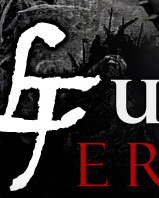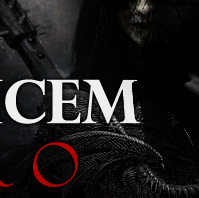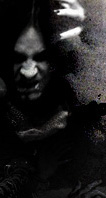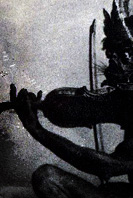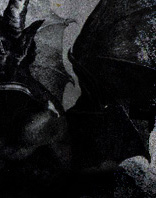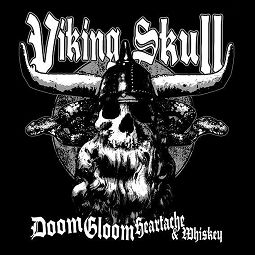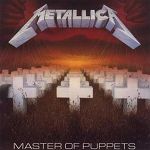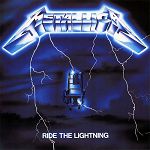

Doom, Gloom, Heartache, & Whiskey by Viking Skull
|
Release date : November 2008
Reviewed by Anthony Morgan

Background information
Review

Background information
Viking Skull grouped during 2003, and initially boasted the following lineup; Raging Speedhorn guitar technician Roddy Stone supplying vocals, Raging Speedhorn's Frank Regan and Darren Smith handling guitars, Gordon Morrison behind the drumkit, and merchandiser Waldie occupying bass. Local jam nights within the likes of Corby, Kettering and Rothwell is where the group began life gigging and rehearsing, given the fact that each track performed earned a free pint. These jam nights began to garner a significant audience, and people requested CDs. For that reason, Viking Skull cut and mixed six track demo Chapter One in just two days to the tune of five hundred pounds. Under the Grand Union Label, it was issued during 2004, and even accrued an eleven out of ten rating in UK's Metal Hammer magazine. As a result of such acclaim, support slots with the likes of Dio, H.I.M., Sum 41, Wednesday 13, and Brides of Destruction beckoned, as well as a slot upon the Snickers Stage at the 2004 Download Festival in Donington, Leicestershire. Midway through a tour supporting Wednesday 13 however, Regan left, causing Stone to additionally handle guitar. In November 2005, full length album Born In Hell was issued. In January 2006, it was announced the group had inked a record contract with 456 Entertainment / Universal to issue the album in the United States. More tours followed, with CKY, Clutch, Hayseed Dixie, and several headlining dates. The group performed at the 2006 Download Festival upon the Snickers Bowl Stage, on June 11th. When the European CKY tour hit Köln, Germany in August, the group disbanded, feuled by absinthe consumption that night, not to mention three weeks sleeping in a transit van without cash.
Morrison continued with Raging Speedhorn, Smith quit the music business altogether in pursuit of conventional work, whilst Stone continued to pen material. Several months passed, and CKY drummer Jess Margera telephoned Stone upon news of the split to hear what had transpired. So that Viking Skull would continue, Margera offered drum services. Waldie was recruited once again, whilst old friend Jules Cooper agreed to play lead guitar. Boasting guest appearances from Reverend Jim of Fireball Ministry, the Brandywine Eel of Gnarkill, Unkle Matt and the Shitbirdz and Chad I. Ginsburg of CKY, Chapter Two was recorded in Philadelphia, and mixed by Ginsburg alongside Phil Nicolo. Issued in 2007 via Filthy Note Digital, it experienced a limited North American CD release. Directed by Bam Margera, a music video was filmed for the track “Blackened Sunrise” in West Chester, Pennsylvania. Issued via Ferret Records in September, the compilation Viva La Bands, Volume 2 boasted the number. An exclusive mix by James Murphy (ex-Death / ex-Testament) was included on the Blackened Sunrise EP that same month, which additionally featured three tracks which didn't figure amongst Chapter Two's final tracklisting.
A batch of club dates took the group through the United Kingdom during late January 2008, with support from Year Long Disaster. In late May, the title of Viking Skull's third studio full length was revealed to be Doom, Gloom, Heartache, & Whiskey, with a scheduled November release date. On July 26th, the group performed their inaugural North American concert at the Filthy Note Theatre in West Chester, Pennsylvania. In association with music distributor Plastic Head, UK's Classic Rock magazine launched Powerage Records during early October. Pencilling Viking Skull's Rich Gavalis produced album in for a November 3rd issue, Lethargy's Purification was scheduled to be issued the very same day. Via Viking Skull's official MySpace page in mid October, both the album's title cut and the group's interpretation of Nazareth's “Hair of the Dog” began streaming.
Review
The spirit of Viking Skull's material lies alongside the likes of AC/DC, but particularly Motörhead's Rock 'N' Roll oriented ditties. Mostly, one staunch riff forms the weight of each specific track, and carries the number upon its respective shoulders throughout. Never pretentious or overcomplicated, the track structures prove altogether straightforward. A bluesy, dirtier sound, boasting working class ethics, is prevalent. Shamelessly sleazy, its simple philosophy upon life can be heard within pubs across the globe. Black Sabbath's doomier tones also surface, albeit to a lesser extent. Three and a half minutes into the title cut, a section emerges which is comparable to one found within “Snowblind” (when Ozzy Osbourne utters the lines; “Don't you think I know what I'm doing / Don't tell me that it's doing me wrong”). Sabbath-esque riffing additionally arrives in the form of “In Hell”'s quieter passage, and “19 Swords” impromptu section. Neither technical nor as gripping as Tony Iommi and company, it proves competent nonetheless.
During its initial forty seconds or so, “Shot Down”'s central riff is performed in an acoustic format. Engaging in itself, it'd be quite interesting to hear a wholly acoustic rendition of the track. Given Viking Skull's connections to Classic Rock, such a rendition could perhaps feature upon a compilation album given away with a future magazine issue. Dubbed “Drink”, the final cut is a marked departure from its fellow songs. When the bartender calls time at the night's end, a drunken customer may sit at the piano, and perform a simple beat. To that beat, the customer sings slightly improvised words. Essentially, this forms the most apt description of concluding number “Drink”.
Whereas 2008's contingent largely wax lyrical in regards to pressing social and political issues, Viking Skull opts to not venture down that avenue. Familiar Rock 'N' Roll topics span Doom, Gloom, Heartache, and Whiskey's lyrical matter, such as beer-fuelled tales centred upon the subject of women and all that entails (“Shot Down”), not to mention references to alcohol beverages such as whiskey and gin (“Drink”). Countless groups wield a political or social message within their tunes, so it's a welcome breath of fresh air when a group negates this approach. A preachy, lecturous demeanour is thankfully absent, whilst a fun, rollicking poise runs riot.
Wallace's guitar solos solely emerge where actually needed, and mostly surface at one specific juncture during a track. Reigned in upon the likes of “In Hell”, “Shot Down”, and “Double or Quits”, the solos' actual presence are never inappropriate, and never spiral to the excessive sprawls which sometimes hinder compositions by other Metal groups. Wallace's solo stylings are more akin to that exhibited by Motörhead's latter day guitarist Phil Campbell, as opposed to the overtly bluesy, earthier tones favoured by Motörhead's former axeman “Fast” Eddie Clarke.
Music aficionados who boast a predilection towards experimental, progressively inclined material will experience disappointment. If you feel that both technicality and complication, within today's climate, are unnecessarily favoured over the paramount aim of penning a great track, then a friend could possibly dwell in the shape of Doom, Gloom, Heartache & Whiskey. Should you wish to sit down, relax, and sip a beverage along to material which fails to demand introspection from its listeners, then Doom, Gloom, Heartache, and Whiskey could possibly fill that void.

